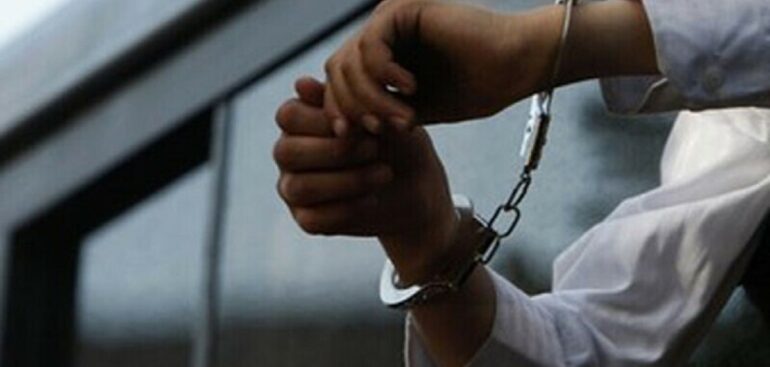The streets of Ward No. 12 in Kahna, Lahore, were eerily silent on the evening of November 3rd. Homes stood abandoned, doors locked, and windows shuttered. A deep, pervasive fear had gripped the Christian community after news broke that Zafar Iqbal, a local Christian man, had been accused of blasphemy—a charge that has repeatedly led to violence and destruction in Pakistan. The mere accusation was enough to trigger panic, a grim testament to the fragile existence of religious minorities in the country.
Iqbal was accused of burning pages of the Quran in the courtyard of his home, an allegation that quickly spread among the local Muslim community. According to rights activist Napolean Qayyum, the accusation came from Qari Mujahid Abbas Fareedi, the imam of the Noorani Mosque. Fareedi claimed that after leading afternoon prayers, two men informed him about Iqbal’s supposed act of desecration. The imam, along with other locals, rushed to Iqbal’s home and allegedly found him near burning papers. They claimed that among the ashes were charred remnants of Quranic verses.
“The news spread like wildfire,” Qayyum said. “As word got out, Christian families didn’t wait to see what would happen next. They locked their homes, grabbed their children, and fled to safer places.”
In Kahna, tensions rose as members of the extremist group Tehreek-e-Labbaik Pakistan (TLP) began gathering. The atmosphere grew increasingly hostile, and fear of an impending mob attack loomed large. Qayyum noted, “The residents knew that once a crowd gathers, it only takes a spark to ignite violence. They left everything behind, thinking it was better to lose their belongings than their lives.”
Local authorities acted swiftly to defuse the situation. Police arrested Iqbal and placed him in judicial custody. His family, however, went into hiding, unreachable and isolated. This rapid intervention prevented immediate violence, and by the next day, some Christian families cautiously returned to their homes. But the damage to their sense of safety was done.
Iqbal now faces charges under Section 295-B of Pakistan’s notorious blasphemy laws, which prescribe a life sentence for desecrating the Quran. Human rights organizations and legal experts have long criticized these laws, not only for their harsh penalties but also for their frequent misuse. Innocent people, often from marginalized communities, find themselves ensnared in a system that offers little protection from false accusations.
Rights activist Qayyum expressed deep concern for Iqbal’s well-being. “He’s over 40 years old, has three children, and is reportedly suffering from mental health issues,” he said. “If these reports are true, he shouldn’t be held accountable in this manner. His mental state must be evaluated, and he should be given the necessary care, not a prison sentence.”
Christian lawyer Lazar Allah Rakha echoed this sentiment, emphasizing that mental health could be a decisive factor in Iqbal’s case. “The law is clear—if someone is mentally unfit, they cannot be held criminally responsible,” Rakha said. “A medical board must be formed to assess his condition. If he’s found to be mentally challenged, the charges should be dropped.”
The ordeal of Zafar Iqbal is not an isolated incident. Pakistan’s blasphemy laws have long been a tool of oppression, particularly against religious minorities. According to a recent investigative report by the National Commission for Human Rights (NCHR), the number of blasphemy cases has surged alarmingly this year. By July, there were 767 people accused of blasphemy languishing in jails across the country, a significant jump from previous years. The NCHR report highlighted the role of collusion between vigilantes and federal investigators in this surge, revealing a disturbing trend where false accusations are used as weapons of extortion and revenge.
In Punjab Province alone, 594 people were imprisoned on blasphemy charges as of July. The report also exposed a sinister network dubbed the “blasphemy business,” where individuals are entrapped through social media, often by operatives posing as women to lure targets into making blasphemous statements online. This exploitation of blasphemy laws for personal gain or vendettas has left countless lives in ruins.
International organizations have taken notice. The United Nations Human Rights Committee recently criticized Pakistan for its failure to protect religious minorities. In a statement issued on October 17th, the committee condemned the sharp increase in blasphemy-related violence, forced conversions, and attacks on places of worship. It painted a bleak picture of a society where intolerance is on the rise, and minorities live under constant threat.
“The situation in Pakistan is dire,” the committee noted. “Religious minorities face systemic persecution, and the government’s inability—or unwillingness—to address this issue only emboldens the perpetrators.”
For the Christian community in Kahna, life will never be the same. Though some families have returned, their trust in their neighbors and the state has been shattered. They live in constant fear that another accusation, another spark, could once again make them targets of violence. Their resilience in the face of such overwhelming odds is remarkable, but it is a resilience born of necessity, not choice.
In the shadow of Pakistan’s blasphemy laws, even the smallest misstep—real or imagined—can lead to devastating consequences. For Zafar Iqbal and his family, the road ahead is fraught with uncertainty. For the Christian community in Kahna, the scars of this incident will linger, a haunting reminder of the fragility of their existence in a society where faith can so easily become a death sentence.
